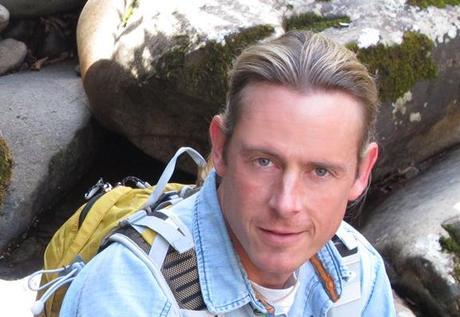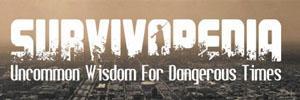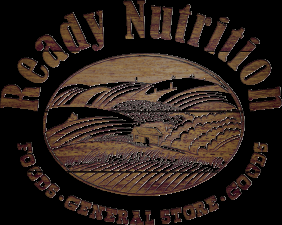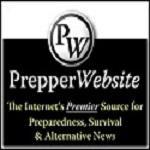Welcome to Part 2 of our Prepper Expert Roundup. 45 Prepping and Survivalist experts weighed in with everything from simple lists to detailed essays all trying to answer the question:
“What are the 3 most important items for a new prepper to get started with?”
Read on to discover each expert’s top 3 (or more in some cases):
Responses listed in the order they were received in:
or Click Here to go back to Part 1 of our Prepper Expert Roundtable
Creek Stewart Willow Haven Outdoor Survival
I believe in prepping for real disasters that happen to real people on a regular basis. In my opinion, the first three initiatives one should tackle if new to preparedness are:
#1: Bug Out Bag: Put together a 72-hour disaster preparedness kit, also called a Bug Out Bag. Should a large scale disaster require sudden evacuation from home, a Bug Out Bag contains everything one needs for 3 days of independent survival. Just putting together this one kit requires a collection of important survival supplies that will always be on hand. Whether Bugging Out or Bugging In, a Bug Out Bag is a critical first step.
#2: Back-Up Heat: Hypothermia is the #1 outdoor killer in the United States. For those in 4-season regions, cold weather can be a top threat in a grid-down scenario. Choose a back-up heat source that can comfortably heat at least one room in your home for a minimum of 2 weeks. These may include a wood burning stove, a generator for electric heat, a kerosene heater or a propane heater. Don't forget to store the necessary fuel!
#3: Water: The human body is over 80% water. We use water during every bodily function including digestion, breathing and even thinking. Calculate the average household water usage for cooking, hydration, hygiene and flushing toilets. Then, store two weeks worth of potable water. This can be in the form of commercial bottled water, repurposed 2-liter bottles or bulk containers such as 55 gallon drums. Rotate every 6 months to 1 year.
Silent Prepper Prepper Central
Isn't this the question of all mystery? What should you start out with? We have been approached by our friends at Organized Prepper and they posed this question for us to provide our input. We are honored to have been included and we hope you are ready for some "stuff". Grab a drink and some popcorn because this may take a bit.
If you ask five different preparedness folks this question, there is a high possibility you will get five different answers. There are many factors to incorporate into this equation such as the number of people you are preparing for, the region you live in, your skill level (first aid training, self defense, etc.), and last but not least... your budget. So I will not tell you that there is one-size fits all when it comes to preparedness. While there are basics you will need no matter what, the amounts and types will vary for each situation. So let's get started with Prepper Central's top three items for the New Prepper.
Let's talk about the basic necessities to sustain life; Water, Food, and Shelter. I'm not trying to insult anyone, but you will see where I am going with this. You have the Rule of 3's in which you can survive 3 minutes without air, 3 hours without securing your body's core temperature, 3 days without water and 3 weeks without food. This is something you can take to the bank, so you should base your decisions on this philosophy. Let's break down the three categories I have listed:
Water - As you can see you can go approximately 3 days without it. This does not mean that you will immediately die at the end of the third day (because everyone's physical makeup is different), it means you will deteriorate quickly without it. Water is a commodity and you should treat it as such. Now if you are planning on staying put (if you don't have to bug out), then you should have an adequate supply of water for you and each person in your family. If you have to leave and are unable to carry a large amount of water with you, then you will need to pre-plan your route to have water sources nearby. The most important part of this is having CLEAN water. Just having water isn't enough, it needs to be clean. Because water with contaminates or parasites in it will kill you just the same. The inexpensive route for water purification would be drops or tablets. But if you have the funds to spare, a Steripen or Katadyn portable purification system would be great in a bug out bag. While there is a formula of (x) amount of water per person, that usually includes water for hygienic purposes. If survival is the goal here, being groomed for a hot date should be the last thing on your to-do list.
Food - You can go a long time without food. Though it (hunger and malnutrition) will greatly diminish your ability to perform tasks, make good decisions, etc., you can survive without food. We should avoid this at all costs. Stock up little by little in your home. Always remember to rotate your food so you don't have a bunch of expired goods sitting in your pantry. Again, if a bug-out situation occurs, you will need to have enough food in your gear to sustain each person in your group. High caloric bars and meal packs such as the ones by Wise foods and other companies are good choices due to shelf life. Also, don't forget that if you live in an area with wildlife, you may want to obtain the necessary tools for hunting and dressing. During times of distress, people start to lose their minds about how they will feed themselves and loved ones. Don't make this mistake.
Shelter - I consider this and water to be your top priorities. If you live in a region with extreme climate (either heat or cold), you can succumb a lot quicker to the elements more than anything else. Having a stocked closet or bug out bag isn't going to mean squat if your freeze to death or fall out due to heat stroke. So making sure your home or wherever you plan on riding out the situation is good enough to keep you safe from the elements is a good start. But you also need to have some gear in your go bag if you are going to have to rough it for some time. You can go from a really simple tent that cost less than $10.00 to an extravagant camping hammock that will be over $200.00. This depends on you, your locale, and your situation. You should always have something to keep you warm like a emergency blanket (space blanket) or sleeping bag liner at the least. Also, some sort of a half shelter like a tarp or rain fly would be great to keep you and others dry and out of the elements. One aspect of shelter that is often overlooked is clothing. Keeping extra clothing with you is detrimental for folks in certain locales. In hot and humid areas, wearing cotton will kill you. You will regulate body temp better in synthetics. For cold areas, layering and Gore-Tex are golden. So take the time and study this. It could save your life one day.
I have not covered everything within these three categories, but it should be a start for anyone. In the end, it is up to you on how you want to start preparing yourself and your loved ones. Always remember that a little can go a long way and while you can spend a ton of money on "stuff", common sense is priceless. Stay safe and stay vigilant. Alec Deacon Survivopedia
That's one tricky question, but keeping in mind that these 3 are the most important to START with, and after add some more essential items, we will say:
- Aquaponics
- First aid-kit
- A good book on survival skills

My three things in order of importance would be:
-50 gallon water barrel
-Back up heat source (if you live somewhere where it snows). This is ideally a woodstove, but if you rent or otherwise can't do one of those, a buddy heater is awesome too.
-An encrypted thumb drive you can EDC on your keychain that has scanned copies of every important doc in your life (birth certificate, marriage certificate, education transcripts/degrees, cc info, insurance info, titles to houses and cars, prescriptions, etc)
Keith H. Burgess Australian Survival and Preppers
1) Get rid of all your debts if you have any.
2) Start growing your own food.
3) Make sure your house is as secure as reasonably can be expected.
After that you can think about learning some wilderness survival skills, getting a pack & kit together in case you have to leave town or the city, & you could put some thought into moving permanently out of town. http://woodsrunnersdiary.blogspot.com.au/
http://australiansurvivalandpreppers.blogspot.com.au/
Jennifer Prepared for Survival
I have been asked what I think the 3 most important things are the most important for survival. Here is my list of what I consider the 3 most important things to get prepped in for long-term survival.
- FOOD! There are many ways to make sure that you have plenty of food on hand. You can start storing food that is canned or buy bulk food. You should also learn how to garden, fish, and hunt.
- WATER! Store up water and find out the ways to be able to get good, clean water for your family. Learn how to filter water or invest in a good water filter system.
- WEAPONS! You have to be able to protect yourself and family in any situation. Weapons can also come in handy when trying to get food.
This was just a basic list, but to me they are the most important things to think about when prepping.
Daisy Luther The Organic Prepper
If you are totally new to prepping, the easiest way to begin is to start small. I recommend preparing for a 2 week power outage. For every family this is going to entail something different. Remember – if the power is out, you won’t be able to go to the store, so every item you prep must have it’s on power supply (think, batteries for a flashlight, etc). Keep in mind your climate, any special needs family members, and anything that could cause DEATH if it isn’t prepared for in advance (this could be anything from vital medications to a heat source in a cold climate).
Start with a 2 week food and water supply – look for items that require no cooking, heating or water for their preparation. This frees you from the need to immediately think about a secondary cooking method.
Next consider your climate: Will you be able to stay warm enough during a two week power outage or do you need to find ways to adapt your home. Sometimes you can prep for this with no purchases necessary. If you already heat with wood, you’re all set. If your heat is grid dependent, put together a kit so that you can isolate one room (curtaining it off from the rest of the house. Then consider pulling out the family camping gear and sleeping in the tent with the kids to share body heat. Other options include items like the Little Buddy propane heater along with propane.
And don’t forget light. We underestimate the importance of light at the flick of a switch. A power outage can be scary, and it is even more frightening in the dark, especially for children. Stock up on candles, lighters, solar garden lights, or flashlights and batteries.
Joe Alton, M.D. aka Dr. Bones Survival Medicine
It's difficult for me to delineate just three things, but, in general, the
three things necessary for any prepper are:
- A way to sterilize water and a concerted effort to store food.
- A choice of appropriate shelter and a plan to defend it.
- A knowledge of first aid and the supplies to deal with medical issues like injuries and infection in times of trouble.
For more specific items:
- Useful water filters include the Lifestraw (very portable) and any Berkey water filter product.
- For medical supplies, having the items in our STOMP SUPREME(tm) trauma bag or our FAMILY MEDICAL BAG(tm) at store.doomandbloom.net are, far and away, the most comprehensive kits a family medic can have. The list of contents are freely published at the website above, so put together you own kit if you have the time available.
- An excellent knife is important for any bugging-out scenario. Blind Horse knives are one of the best.

This is a difficult question to answer without knowing any details about
the person to whom I'm giving advice. For example, what I recommend to a
single person living in an apartment in the city would be quite different from what I would recommend to a family living on 10 acres of land. These are two vastly different situations.
For the purpose of answering your question, I'll take the middle ground by assuming that I'm giving advice to an average family (married couple, two kids) who lives in the suburbs.
With that in mind, here are the three most important items to get first.
Item #1: High-quality sleeping bags for each member of the family.
In almost every kind of survival situation, your priorities will be in this order: shelter, water, food. So my first recommendation has to do with shelter.
I recommend families have a high-quality sleeping bag for each member of the family. Why sleeping bags? Because one of the quickest ways to die is hypothermia. I've been on the edge of hypothermia one time in my life and I never want to experience it again. Hypothermia can kill you in a matter of a few hours. But if you have high-quality sleeping bags, your entire family will be protected from exposure to cold temperatures.
I recommend you get your sleeping bags at an outdoors specialty store like REI. Get the type of bags that can be stuffed into a small sack for easy carrying. At a bare minimum, you'll want the bags rated down to 30F degrees. Better to get them rated to 15F degrees. A zero-degree bag is probably overkill for most places in the U.S., but might be your first choice in areas that routinely go below zero during the winter. These sleeping bags could be taken on the road if necessary and could even be used inside your home if your GFA furnace was no longer operational due to a natural gas shortage or loss of electricity.
Item #2: A portable water filter.
If you don't first die of exposure (hypothermia), you could die from drinking contaminated water. That's why a portable water filter is a necessity. I have three portable water filters, including a Katadyn Hiker Pro. I can take one or more of them with me if I ever need to bug out and leave my home. I can also use these filters inside my home.
For example, let's say a nearby water treatment facility fails and no water is being supplied to my house for 24-72 hours. I can use my portable filters to purify the water that's sitting in the reservoir in the back of my toilets. I can also walk down to a nearby stream and filter the water there.
By having a portable water filter, you virtually guarantee you will always have clean drinking water available.
Item #3: A store of non-perishable food.
I personally believe our modern food system is extremely vulnerable. Very few people store food. Fewer still grow their own food -- or even know how. So if there is any kind of disruption to the food supply, I expect millions to go hungry.
The solution is simple: Start building your own personal store of non-perishable food.
You can take the easy (more expensive) way by purchasing a 30-day, 90-day, or 12-month supply from a supplier like Food Insurance. Or you can take a more methodical approach by buying extra food from your local grocery store, Costco, or Sam's Club.
Items you may want to consider stocking: steel-cut oats, rice, beans, pasta, canned foods, dehydrated fruit (like apricots, prunes, etc.), and chicken stock.
My local Costco stocks large bags of rice, and I recommend you buy at least one bag for your store of food.
Keep in mind that storing food will not only help you in a widespread food crisis -- it will also help you in a personal crisis. If you or your partner (or both of you) are ever out of work and have drained all your accounts, at least you'll still be able to eat!
In addition to his blog you can also find Survival Joe on Facebook
Guiles Hendrik Last Minute SurvivalAt Last Minute Survival we put a premium on both the tangible and intangible preparedness. The intangible may be by far the most important and will serve you long after physical items break, wear out, and are lost. Luckily these won't cost you a dime. The three most important intangible items for any Prepper to have are:
- Mindset (the determination to persevere and survive no matter what)
- The ability to improvise (use all surroundings efficiently and skillfully to better your odds)
- Good common sense and quick thinking (no substitute for an agile and observant mind)
Respective of tangible items (gear), our philosophy is that one item you are highly proficient with is far better than a mountain of state-of-the-art gear you have never actually used under the conditions you will expect it to perform under. As such, shooting 900 rounds of a case of a 1,000 rounds of ammunition for practice (leaving you only with 100 rounds) will be far better for your overall preparedness than having a case of X10 that number (1000 rounds) that you have never shot. As such, we would recommend that you always pick the highest quality items and practice relentlessly with them. Wear them out! The guy with a .22 caliber single action revolver that practiced so much he can hit six targets in two seconds from the hip is far more prepared than a person with twenty very expensive "sniper" rifles that they have only fired a couple times.
Nonetheless, to answer your specific gear items, I would say from over a decade of experience in combat zones around the world the three most important items are those basic essentials you should have on your person at all times and master using. Those items are:
- Fire starter (lighter)
- Excellent pocket knife (Gerber or SOG Multi-tools are excellent)
- Tie...*Smart Phone or Watch (Casio Pathfinder watches are excellent)
*Communication equipment is an essential item throughout a crisis for a Prepper and now smartphones can hold huge amounts of data to include medical guide books, ballistic calculators, electronic compass/GPS, maps, and even have small flashlights.
I know this list may not sound sexy, but being prepared is often more about being sound in fundamentals than having lots of gear.
isurvivalskills Bushcraft and Survival Skills
IMHO there is a huge difference between a typical "Prepper" and a real
Survivalist - 99% of Preppers will stock the typical sundries...
Water - Food - Ammo and everything in between. My question for those people is very simple, and it is this:
"What will you do when your supplies run out?"
The 3 most important things for a new Prepper are:
- Skills
- Skills
- Skills
Most Preppers start out backwards - they buy loads of supplies and learn nothing in the way of Survival Skills, which is recipe for REAL DISASTER...
Learn Basic Survival Skills first and know them cold - Then use your supplies as a absolute last resort when all other options have been exhausted...
I have an article I wrote a while ago that goes into more detail of what I mean here:
"Survival Preparedness: Survival Skills & Survival Kits"
But that is Basic - if you go through my blog almost anything you want to know about specific Survival Skills is in there.
Jollymoon Prepper Info.us
- Water and Food
- Fire and Shelter
- Protection (weapon, stay hidden, defense skills)
Here are our top three recommendations:
1) Use time wisely.
Faith, Family, Career, Preps, Personal Time. This is how we try to prioritize our time every day. Faith is number one and forms the foundation for how we use the rest of our time. Using these priorities over the years, I have noticed that things run much smoother, my thoughts and plans remain focused and my personal time has become more productive.
2) Prepare for the obvious by setting realistic goals and maintaining that level of readiness.
We live in the heart of tornado country. Chances are slim that we will be hit directly with a twister but the odds are good that there will be damage in the area. We plan for that and prepare accordingly. We also happen to live in an area that is often hit with freakishly heavy snow storms in the winter. Our group has set a goal of having our homes able to operate normally, without resupply, for a minimum of 3 weeks.
Every day there is news of a small-to-medium sized neighborhood evacuation somewhere in the US. We prepare for this also. Imagine having less than 5 minutes to leave your property for an undetermined destination and for an undetermined amount of time. This happens almost daily but rarely makes the national news so many people don't think it can happen to them. Go-bags and evacuation plans are essential to our preps. Our go-bags are used often, refined as needed and inventoried constantly.
These are the basic levels of preparedness that every household should begin with. This may sound simple but this plan has it's challenges. I would bet that 99% of the preppers today, myself included, would have room for improvement in these two areas. It doesn't make any sense for a new prepper to try prepping for an unlikely or otherwise incredible event if their household isn't completely prepared for what does historically occur in their area. Tragedies such sudden death, long-term illness, bodily injury, career changes and small localized disasters are all FAR more likely to rattle our world than the large-scale events that are hyped in the media.
3) Form a solid group of like-minded people.
There is strength and security in numbers especially when everyone is "on the same page". This has been the most difficult aspect of our preps and has taken the longest to achieve. Having a Mutual Aid Group in place before a disaster hits can keep our family from becoming refugees and a burden to the governmental emergency aid system. Preparing as a group also provides the opportunity to lighten the work load on individual members.
Selco Selco's Survival Course
It is hard to answer because there can be many combinations.
As new pepper first items would be to start with something that you can carry with you, so it would be
- Weapon
- Good bug out bag
- Proper clothing and footwear
It may look strange to go with this over some other items, like for example water filter, good storage etc. but man who is new in prepping need to go first from preparing himself. Another good combination (it is more what to achieve than what to have) would be:
- One skill in depth (for example first aid, or EMT knowledge or learn to work with wood or similar)
- Get yourself "comfortable" with violence and results of violence and similar (some charity work maybe in hospitals, with homeless, addicts etc)
- Get yourself in shape
Very basic answer would be:
- Small personal first aid kit (learn how to use everything inside, and use common sense and build your own, factory "assembled" ones often do not have too much sense)
- Good multitool ( scavenging)
- Pistol
After spending the weekend in the woods, I would have to say: Water
and Fire are a given.
Water as 36 hours worth of water for the individual. That's 2-3 gallons (roughly 1 gallon for drinking and 1 for cooking/cleaning per person per day).
Fire for warmth and cooking. Whether it is a stockpile of matches or firestarters, you want to be able to have fire even if the power is out. I started with strike anywhere matches and a magnesium block (reviewed on website).
Food would be the round out. This is always debatable because of the shelter discussion and most new preppers live in a house but do not always have food for emergencies. Keep in mind, I think a new prepper should start small and look at a 36 hour stockpile. This could include powerbars, cliff bars or even a supersize jar of peanut butter. For some items at the store, there are usually sales of "buy one, get one". I used this method to start my food storage and build it fairly quickly and at a great savings.
There is one other item I would add and might be included in the above and that is a solid knife. You might need it to scrape the firestarter, cut a container for water or even skin a rabbit. You can't go wrong in the "tool" section of prepping with a good, sturdy, dependable and sharp knife.
Tess Pennington Ready Nutrition
If I had to start with three prepper items, I would concentrate my efforts on items that will assist in our basic survival needs. I would invest in the following:
- A water purification system. In our pantry, we have a supply of purified water on hand and have backed up our preparedness measures with ways to purify water chemically, and also have a Katadyn water filtration system, as well as a Berky water filtration system. Here are 5 ways to start storing water for emergencies.
- 1-2 week supply of shelf stable foods that are already prepared to cut down on fuel usage, time preparation and water usage. It would be easier to have foods that are already prepared. Many preppers are even canning meals to use for this short term food supply. You could also invest in Army issued MRE’s or make your own!
- A good multitool. You would be surprised how handy multitools are. I have used mine so often that I carry it around in my purse!

According to a recent Prepper Website poll, "What should a newbie
Prepper focus on the most?" The top three were: Developing a Plan,
Acquiring Knowledge and Food Storage. I agree with the first two, I'm not sure I agree with the last one.
Developing a plan is by far the most important. The problem that a new prepper might have is that they get overwhelmed when their "eyes are open" to how fragile we are and go into panic mode. Panic mode causes people to make bad decisions and spend money on purchases that are not necessary. That is why developing a plan is the most important. For some great articles on developing a prepper plan visit - http://www.prepperwebsite.com/tag/plan/ and http://www.prepperwebsite.com/tag/planning/.
Acquiring Knowledge is very important too! This is one reason why I started Prepper Website, "to provide links to quality articles and websites that focus on preparing for emergencies, survival, homesteading, simple life and alternative news." Now I know this sounds awkward for a person who runs a website, but a new prepper...and even experienced preppers, shouldn't spend all their time online acquiring "book" knowledge. Acquiring knowledge should encompass putting that knowledge to use, practicing and perfecting what you are learning.
The third thing is where I break with my own poll. I believe one of the most important things to acquire is water over food storage. Clean, potable water is so important. You can go a while without food. You can't go very long without water! Here, redundancy is the key. Having several ways to store and filter water are necessary! For some great articles, visit - http://www.prepperwebsite.com/tag/water/
Todd Sepulveda is the owner of The Prepper Website and blogs at Ed That Matters.
Leon Pantenburg Survival Common SenseKnife, reliable firemaking system, compact water filter, such as a LifeStraw
Jennifer Osuch Are We Crazy, Or What?
The three important items to get you started:
There are countless things you can buy to help you get started in prepping and they will depend on your situation: where you live, who you have in your care, your values, and what other things you have at your disposal. However, simply purchasing things is not the most important thing you can do to start prepping. Here are three things more important than any preps you can buy:
- Community: Whether it is actual or virtual, finding a community is the place to start. You need to talk to other like-minded individuals to get feedback, reassurance, encouragement and help. Many towns have meet-up communities, where people actually get together to talk about prepping and survival. Also, there are great online communities and blogs. I encourage new preppers to get involved in some way with other people who have the same goals, lifestyle and values.
- A Goal: I think this is the first thing I did when I was new to preparedness because I get so easily distracted by shiny things that might not be all that important. Set a small goal; a 2 week food supply for example. Stick to it, achieve it and then set a bigger goal. This world of prepping can be overwhelming if you don’t break it down into small manageable chunks.
- A Plan: Make a plan to achieve your goal. Write it out on paper or type it up. Where will you put your new preps? How will you pay for them? How will you manage them? How will you learn to use them? All these questions should be answered by your plan.
This process (find a community, setting a goal, and making a plan) can also be applied to skills. Who do I know who does this skill? What is my goal for learning this skill? What is my plan to learn this skill? When and how will I use this skill?
Getting this process down is far more valuable than anything you can “just go buy”.
I want to thank all of our experts for sharing their thoughts with us to help everyone get better prepared.
As a reminder, here is a quick summary of everything that got 3 or more votes:
Click Here to go back to Part 1 of our Prepper Expert Roundtable
Water Storage / Water Filtration 32
Food Supply 25
Knowledge / Training / Reference Books 14
Knife 8
Proper & Secure Shelter 7
Firearm / Protection 7
72 Hours Bag or Bug Out Bag 6
A Plan 6
Heat Source / Fire Starter 6
First Aid Kit 5
Good Mental Attitude 5
Financial Plan / Budget / Emergency Fund 4
Light Source 3
Medicine (OTC & Prescription) 3


COMMENTS ( 1 )
posted on 07 September at 17:28
I really need to get a password for this site...theres a video i need to see so bad but cant find...best video ever but i cant find it for free...
Victoria Redd Passwords Hackers - http://nats.victoriaredd.com/track/MTAwMDA1NC4zLjE3LjE3LjAuMC4wLjAuMA